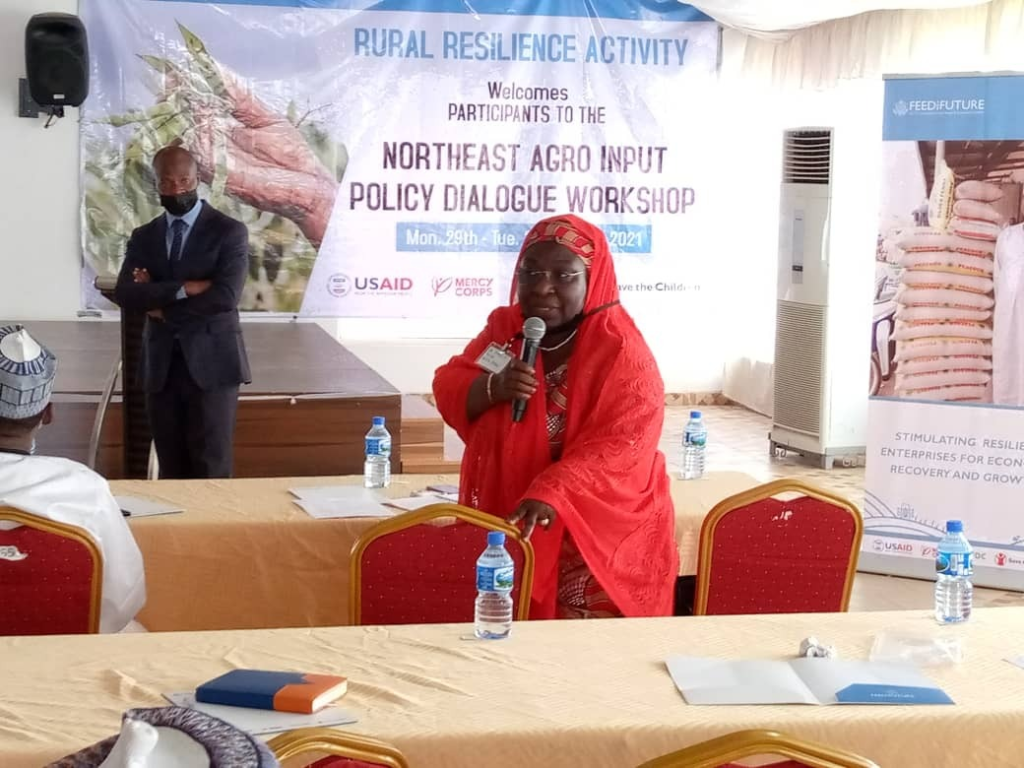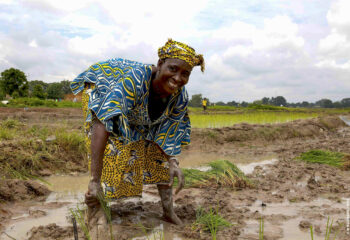
In March 2021, the USAID-funded Nigeria Rural Resilience Activity hosted the North-East Agro-Inputs Policy Dialogue Workshop, which brought together leaders of policymaking institutions related to agricultural inputs from each of the project’s target states. Participants of this two-day dialogue included Commissioners and Permanent Secretaries of Ministries of Agriculture, Head of the Agricultural Development Programs, Chairman of the House Committee on Agriculture from the State Houses of Assembly, and representatives from the Farm Inputs Support Services of the Federal Ministry of Agriculture and Rural Development, National Agricultural Seeds Council, and Office of the National Security Adviser. The event was also attended by key input regulators in seeds, fertilizers, and crop protection chemicals, major input providers, agro-input dealers in the target states, and policy advocacy experts.
The workshop focused on articulating the policy-related bottlenecks to input access in target states from the experiences of the private sector operatives and the policy position of the government. Deliberations were held on the issue of fertilizer access in the region in relation to security considerations and agricultural productivity. The group’s work further validated the input access situation in the states and provided insight on implementing alternative and sustainable options for improvement while maintaining the gains of security interventions.
The major output of the dialogue was the establishment of the North-East Input Security System Networks, with technical and advocacy working groups that will develop an advocacy document and plans for deploying the document as a means of advocating for an improved policy environment for input access in the target states. Fifty-four people attended the workshop. The formation of institutional innovations and strategic arrangements was recommended during the workshop. These innovative approaches and institutional arrangements will provide small producers with an array of services, including improved market access, strengthened negotiating power, enhanced access to and management of natural resources, and improved access to information and knowledge.




